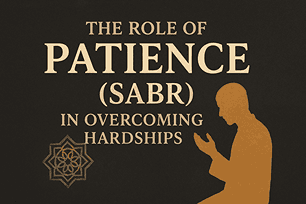Islamic
Barriers to regular prayer, Daily prayer in Islam, Importance of prayer in Islam, Islamic guidance on Salah, Neglecting Salah, Salah and Muslim lifestyle, Solutions to neglecting Salah, Spiritual discipline in Islam, Strengthening faith through prayer, Why Muslims skip Salah, Zeeshan Azhar
Zeeshan Azhar
0 Comments
Why Do Muslims Manage Everything but Neglect Salah?

Salah (prayer) is the second pillar of Islam and a daily reminder of our connection with Allah (SWT). It is not just an act of worship but a spiritual discipline that structures a Muslim’s life. Yet, despite understanding its importance, many Muslims manage their careers, businesses, studies, and even leisure activities with precision—but when it comes to Salah, they fall short.
This paradox raises a critical question: Why do Muslims manage everything but neglect Salah? Let’s explore the reasons and practical solutions to overcome this issue.
1. The Priority Dilemma: Worldly vs. Spiritual Commitments

Muslims often prioritize worldly responsibilities—jobs, education, finances—over Salah. The irony is that the same discipline used to maintain deadlines or attend meetings could easily be applied to prayer. Unfortunately, many perceive Salah as a “ritual” rather than a lifeline of faith, placing it lower on their to-do list.
Solution:
Reframe Salah as your ultimate appointment with Allah.
Remember the Hadith: “The first matter that the slave will be brought to account for on the Day of Judgment is the prayer.” (Tirmidhi).
2. Busy Schedules and Time Mismanagement

Medical trainees, businessmen, students—everyone claims to be “too busy.” Ironically, the same individuals find time for social media scrolling, Netflix, or casual hangouts. The issue is not lack of time, but lack of time management.
Solution:
Plan your day around Salah, not Salah around your day.
Use mobile reminders or Salah apps to stay punctual.
Adopt the Prophet’s (ﷺ) Sunnah of organizing tasks between prayer times.
3. Lack of Spiritual Connection

For many, Salah becomes mechanical—words are recited without heart. This lack of khushu’ (concentration) leads to boredom and eventual neglect.
Solution:
Learn the meaning of Surah Al-Fatihah and short Surahs.
Visualize standing before Allah during prayer.
Vary recitations in Salah to maintain engagement.
4. Influence of Modern Lifestyle

The fast-paced lifestyle, constant notifications, and digital distractions push Salah further down the priority list. When work emails or assignments clash with prayer time, Salah is often sacrificed.
Solution:
Silence devices during Salah.
Build Salah-friendly routines (e.g., praying before meetings).
Understand that true success lies in barakah (blessings), not just productivity.
5. Weakness of Iman (Faith)

Iman fluctuates, and when it weakens, Salah is the first to be compromised. A person may fulfill worldly obligations with passion but show laziness in worship.
Solution:
Strengthen faith through Quran recitation and dhikr.
Keep good company that reminds you of Allah.
Visit the mosque regularly to build spiritual discipline.
6. Peer Pressure and Environment

In workplaces, universities, or social circles, Muslims may feel hesitant to excuse themselves for Salah due to fear of judgment or inconvenience.
Solution:
Take pride in practicing Islam openly.
Politely excuse yourself for Salah—it inspires others too.
Remember that Allah’s pleasure outweighs people’s opinions.
7. Misunderstanding of Success

Many Muslims equate success with wealth, status, or academic achievements. Salah, however, is seen as “optional spirituality” rather than the very foundation of success.
Solution:
Reflect on the Quran: “Indeed, success is for the believers, those who humble themselves in prayer.” (Surah Al-Mu’minun: 1–2).
Recognize Salah as the ultimate key to peace, blessings, and success in both worlds.
Practical Tips to Stay Consistent in Salah
Start small but steady – even if you struggle, commit to one prayer consistently and build up.
Pray in congregation – it builds discipline and motivation.
Associate Salah with blessings – link it with productivity, peace, and problem-solving.
Seek forgiveness and renew intentions – never give up if you miss a prayer; instead, turn back to Allah.
Conclusion
Muslims prove daily that they can manage studies, jobs, and worldly commitments effectively. Yet, neglecting Salah is proof of misplaced priorities. Prayer is not an interruption but a source of strength, tranquility, and ultimate success.
If we can organize meetings, deadlines, and projects, we can certainly organize our lives around Salah. The solution lies not in finding time for prayer, but in making prayer the center of time itself.













Post Comment